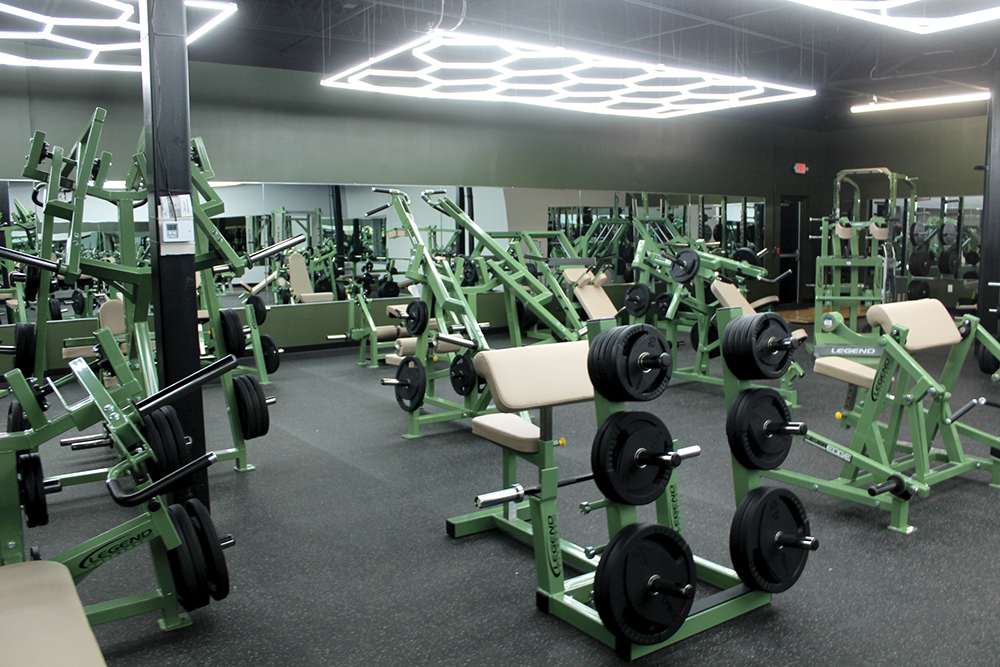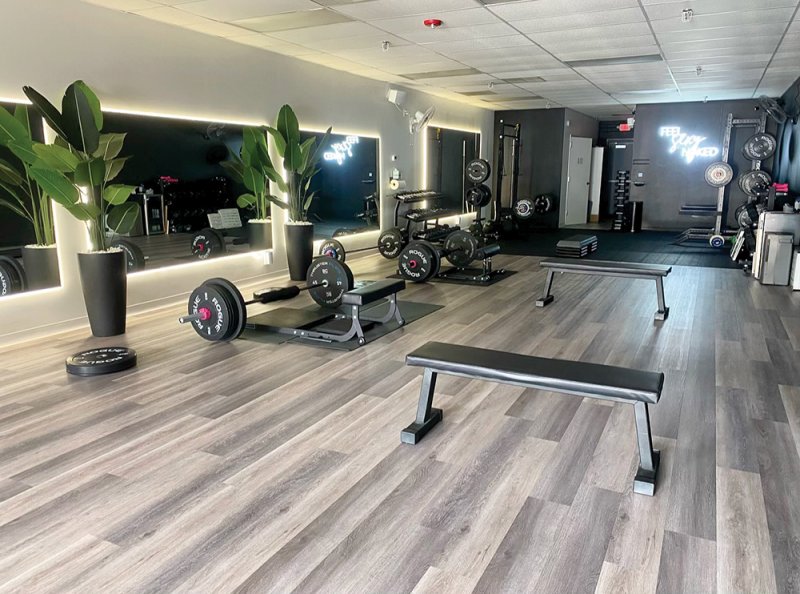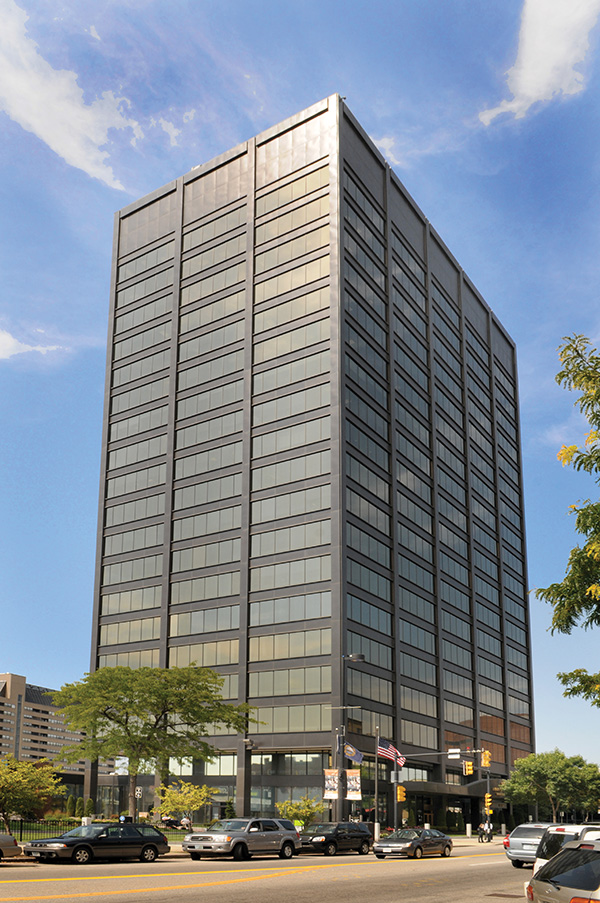 The Hudson Plaza now includes many medical and health care services. (Courtesy of Berkshire Hathaway Home Services)
The Hudson Plaza now includes many medical and health care services. (Courtesy of Berkshire Hathaway Home Services)
After nearly 17 years of operating his physical therapy practice from a less-than-ideal office location, Jason Hendricks decided it was time to make a move. Orthopedic Physical Therapy Associates was outgrowing its space on Main Dunstable Road in Nashua.
Working with commercial real estate agent Matt Lefebvre of Downtown Realty in Bedford, Hendricks found the perfect location in the building next door. While the new location may have been nearby, it was worlds away in terms of appearance, access, and amenities.
The old location was in the building’s basement with windows at ground level. Neighboring tenants were disruptive. Patients had to deal with stairs, low ceilings, and dimly lit hallways. In his new location, Hendricks occupies the top floor of a remodeled office space with tall ceilings, large windows, and elevator access.
The rent is about 50% more than what he was paying a few hundred yards away, but well worth it, he says. “It’s more rent for the same square footage, but we lost many negatives from the old building, so it has been a net positive,” says Hendricks. “And we were able to get a large sign on the building. That alone pays for the rent increase by increasing business visibility.”
This positive result is part of a common trend in today’s market for white-collar office space, according to Lefebvre. Light medical practitioners like physical therapists, dentists, and dermatologists (who can’t work from home) are moving into spaces abandoned by white-collar enterprises in the post-COVID work world.
 Valid Fitness, located in the Hudson Plaza. (Courtesy of Berkshire Hathaway Home Services)
Valid Fitness, located in the Hudson Plaza. (Courtesy of Berkshire Hathaway Home Services)
Growth in the medical sector is one of the factors helping to sustain the market, according to Lefebvre. “Not every office building built in the 1960s or 1970s can be converted to apartments,” he says, “but in many cases they can be converted into medical office space, where we’ve seen significant growth in New Hampshire as our population is aging.”
Medical practitioners are not only helping to fill vacant office space, they’re moving into shuttered retail locations as well. “The medical services are eating up retail space,” says Kathy DeMello of Berkshire Hathaway Home Services in Londonderry. “The old Hudson Plaza at 290 Derry Road is almost filled up with those kinds of people. A gym took over a large portion, along with a physical therapist, a personal trainer, and a dry needle therapist.”
 DoBetter Personal Trainer, located in the Hudson Plaza. (Courtesy of Berkshire Hathaway Home Services)
DoBetter Personal Trainer, located in the Hudson Plaza. (Courtesy of Berkshire Hathaway Home Services)
Lease Prices are Stable
Despite the widespread perception that the market for office space is crashing, vacancy rates for office space in the state’s most desirable locations actually declined recently, while rents are going up, ever so slightly, according to Lefebvre.
“One of the reasons we are seeing reductions in vacancies and increases in rent [for office space] is that a lot of Class A and Class B office space is getting converted to other uses, and the office inventory is not available,” he says. “If you take out hundreds of thousands of square feet of supply, demand for the remaining supply tends to go up.”
 One of the most prominent examples of this trend is the skyscraper at 1000 Elm St. in Manchester (pictured), where the city recently issued approval to convert eight of the 20 floors into 134 apartments.
One of the most prominent examples of this trend is the skyscraper at 1000 Elm St. in Manchester (pictured), where the city recently issued approval to convert eight of the 20 floors into 134 apartments.
Another one of Manchester’s most prominent office towers, the former Citizens Bank building on Elm Street, was converted into 91 apartments by Seacoast businessman Bill Binnie and sold in 2019, just before COVID hit.
If developers and property owners aren’t converting office space, they aren’t necessarily renting it either. “We’re seeing an interesting trend where developers are sitting on vacant office space with plans to develop it into residential or some kind of mixed-use in the future,” says Lefebvre.
According to the most recent data available from the New England Commercial Property Exchange, prices for office space are holding or even increasing slightly, with rents averaging around $15 to $16 per square foot, compared to $14 to $15 in the same period last year.
“If you go back five or 10 years, it was common to see $10 or $11 a square foot for nice Class B or lower Class A office space, and now we are shopping the same areas and the same quality and are seeing rents at $16, $18, even $20 per square foot for a higher-end building like 1000 Elm St.,” says Lefebvre. “The supply has been narrowed down to a smaller number of Class A office buildings.”
That doesn’t mean there’s a shortage. Colliers puts the average vacancy rate for office space statewide somewhere between 10.5% and 11%—higher in the North Country and less developed areas, lower in the I-95, I-93 and Route 3 corridors. To put that in some perspective, the vacancy rate for industrial space is 2.9% and for apartments is 0.5%.
Looking for Smaller Spaces
Businesses looking for a change in office space are mostly looking to downsize from their current location, even if their business and payroll are growing, because of more work at home and hybrid models.
“I’m starting to see more people come to me who want office space, so it’s starting to come back,” says Brian Dano with the Masiello Group in Bedford. “But they are not looking for large square footages; they are downsizing.”
Lefebvre agrees that many businesses are looking to downsize their office footprint. “Their big priorities are having adequate parking and having privacy in the office space,” he says. “We’re seeing a trend away from shared bathrooms, and more of a desire to have one or two private restrooms in an office suite.”
A big emphasis is on technology, he says, with clients expecting reliable high-speed internet, ethernet wiring throughout, and pre-installed, two-way conferencing technology to accommodate hybrid meetings.
Another saving grace for the market is that many businesses still need a physical location to meet licensing and marketing requirements. “I found a satellite office for a Manchester-based closing company in York, Maine, and it was solely for them to maintain their Maine license,” says Dano.
“They can do closings there, but it’s not a nice office, not Class A by any means. They were looking for a cheap office that met their criteria, like proximity to the highway, a conference room, kitchenette, and shared bathrooms.”
The final chapter on the fate of office space post-COVID is still being written, according to Dano. “The standard commercial lease is five to 10 years,” he says. “As these renewals come up, will we still see them renewing their space? That’s the big question, and at this point I think the power is with those tenants. They can go to the landlord and say for the past four years we’ve been using 20% of our space, and we’re willing to renew but at some lower rate or go somewhere else. It’s definitely a tenants’ market.

 Current Issue - April 2024
Current Issue - April 2024